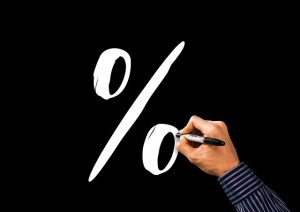Buying a Business: What’s it Worth?
13 December 2021: Buying a Business: What’s it Worth
Buying a business requires as much attention to value by the buyer as selling one requires of the seller.
 When buying a business, with the proper documents, a buyer – or, more realistically, the buyer’s broker – can go through the same valuation process as the seller’s broker; examine the financials and the tax returns and adjust the numbers for extraordinary and non-operational expenses to determine the business’ actual earnings record for the past three to five years. Examine existing contracts and sales trends to try to project the business’ earnings for the next couple of years. Determine what other, similar businesses have sold for recently and apply those metrics to the business being considered.
When buying a business, with the proper documents, a buyer – or, more realistically, the buyer’s broker – can go through the same valuation process as the seller’s broker; examine the financials and the tax returns and adjust the numbers for extraordinary and non-operational expenses to determine the business’ actual earnings record for the past three to five years. Examine existing contracts and sales trends to try to project the business’ earnings for the next couple of years. Determine what other, similar businesses have sold for recently and apply those metrics to the business being considered.
This will give you an idea as to how the market would value that business.
But if you’re the buyer, this doesn’t necessarily tell you if that particular business is right for you. No matter what others have paid for similar businesses, you want to make sure that, when buying a business, you don’t overpay for the one you’re looking at. One way to avoid overpaying is by applying two valuation principles that are commonly used in commercial real estate investing to the acquisition of a business.
These two principals are the Principle of Alternatives and the Principle of Substitution.
_____________________________________________________________________________
Our course, “Learn How to Value and SUCCESSFULLY Sell Businesses“, teaches you how to value and sell businesses.
Become a Professional Business Broker…
Those two principles may sound the same but they aren’t necessarily. Let’s take a look at both and how we apply them to business valuation.
The Principle of Alternatives
 The Principle of Alternatives states that each party to a transaction always has an alternative to consummating that transaction.
The Principle of Alternatives states that each party to a transaction always has an alternative to consummating that transaction.
When buying a business, this means that you are not “married” to the particular business you’re actively evaluating; that you have alternatives. This is a fundamental aspect of valuing a business because understanding it will keep your mind open to such alternatives and help you avoid tunnel vision.
It is not unusual for buyers to focus on the first business that strikes their fancy. They begin to see themselves as the owners of the business they’re evaluating and the more time they have invested in the due diligence process of the acquisition, the more emotionally invested they become; the more clearly they can see themselves as the owner.
But there are always other businesses out there and one or more could prove to be a much better deal. As you are negotiating to buy one business, never fall into the mindset that you have to buy that one. Assuming you’ve hired a professional business broker to find targets that meet the criteria you’ve laid out, your broker should have presented you with several qualified options to consider.
We’ve launched a coaching program specifically tailored to Realtors that want to sell businesses, business owners and to anyone that wants to become a business broker.
If you’d like to learn more, email me at
jo*@Wo*******************.com
Always remember that there are other opportunities. Some will have better future prospects. Others will have better prices or management teams. Still others will offer better financing.
When buyers forget this Principle of Alternatives, they run the risk of overpaying for the business they ultimately acquire. This applies to individual buyers doing a financial acquisition as well as to corporate buyers looking for a strategic acquisition.
The Principle of Substitution
The Principle of Substitution is the hypothesis that the value of something tends to be the price paid for an equally desirable substitution.
The best way to illustrate this principle is to explain how it’s used in commercial real estate.
 When considering a particular real estate investment, professional real estate investors will look at multiple investment opportunities. This principle says that the maximum value of a property is usually established by the cost of acquiring an equivalent substitute property that has the same use, design, and income and is in similar condition.
When considering a particular real estate investment, professional real estate investors will look at multiple investment opportunities. This principle says that the maximum value of a property is usually established by the cost of acquiring an equivalent substitute property that has the same use, design, and income and is in similar condition.
When doing a Broker’s Opinion of Value of an existing property, a commercial broker will use the principle of Substitution by comparing that existing property to replacing that property.
to illustrate, if it will cost the buyer $500,000 to purchase property and build exactly what they need, they will look at existing options, determine what it would cost to convert such existing options to accommodate their need, deduct that amount from the cost of a new building and arrive at what they will pay for the existing building. Here’s an example:
| Cost of new Building: | $500,000 | |
|
Cost to upgrade existing building: |
($175,000) | |
|
Amount that can be paid for existing building: |
$325,000 |
Using another example (and putting it another way), why would anyone pay $2 million for an investment property when they could purchase a different but equally desirable property in the same area for only $1.5 million?
This principle applies to business acquisition as much as it does to investment real estate acquisition.
One From Our Files
 One of our colleagues on the West Coast of the U.S. was struggling with valuing a manufacturing business. The value of the business based on the discretionary earnings it generated for its owner was roughly $3 million. But the value of the FF&E used to produce that $3 million valuation was ALSO about $3 million. Because the FF&E had such a high value, the broker wanted to know if he could add the value of the FF&E to the value of the Discretionary Earnings to arrive at the business’ value.
One of our colleagues on the West Coast of the U.S. was struggling with valuing a manufacturing business. The value of the business based on the discretionary earnings it generated for its owner was roughly $3 million. But the value of the FF&E used to produce that $3 million valuation was ALSO about $3 million. Because the FF&E had such a high value, the broker wanted to know if he could add the value of the FF&E to the value of the Discretionary Earnings to arrive at the business’ value.
We explained that, using the Principle of Substitution, a buyer could buy $3 million worth of FF&E and, within a short period of time, have a business generating enough Discretionary Earnings to warrant a value of $3 million. Therefore, if the buyer could have a business worth $3 million shortly after buying $3 million in FF&E, why would that buyer buy the broker’s business for $6 million?
Another example of the Principle of Substitution is this: Business A costs $5 million to replicate. However, another equally desirable but different business – Business B – could be acquired for only $3.5 million. All other things being equal, the Principle of Substitution tells us that Business A is worth about $3.5 million dollars.
But hold on, there, Bucko! I can hear half of you starting to type maniacally on your keyboards, in ALL CAPS, about the bottom lines of the two businesses and whether Business B is equal to Business A.
 Calm down for a moment.
Calm down for a moment.
Of course, in business acquisition – as in investment real estate acquisition – the return on the buyer’s investment (“ROI”) is a critical component to consider when applying these principles; and arguably, ROI is the decision-maker.
If Business A in the example above will provide a return of 25% on the buyer’s investment while Business B would provide a return of only 15%, it doesn’t matter what either business is priced at. A rational investor will choose the one with the better return.
The Bottom Line
When valuing most businesses in the lower Middle Market, the principles of alternatives and substitution business valuation are often used in conjunction with our standard work of recasting a business’ earnings, developing proforma projections of future earnings, using discounted cash flow analysis when appropriate and applying the market approach to value when working to determine a business’ market worth. This is particularly true when we’re working for and getting paid by the buyer; when we’re working as a buyer’s broker.
They are great tools that help buyers see the proverbial “bigger picture”; the broad landscape of available opportunities.
If a buyer gets tunnel vision and focuses on one business to the exclusion of other opportunities just because he or she can see themselves owning that particular business or, worse, because they’ve got time and money invested in the due diligence process, it is likely that such a buyer will overpay for the business.
If you have any questions or comments on this topic – or any topic related to business – I’d like to hear from you. Put them in the comments box below. Start the conversation and I’ll get back to you with answers or my own comments. If I get enough on one topic, I’ll address them in a future post or podcast.
Searching For…
This week’s “Searching For” item: U.S. based industrial services (repair, replace, equipment maintenance, calibration and monitoring) with Discretionary Earnings between $1 million and $5 million.
If any of you know of something that might fit, please let me know.
I’ll be back with you again next Monday. In the meantime, I hope you have a safe and profitable week.
Joe
 #business #businessacquisition #sellabusiness #becomeabusinessbroker #businessbrokering #businessvaluation #MergersandAcquisitions #buyabusiness #sellabusiness #realtor #realestateagents
#business #businessacquisition #sellabusiness #becomeabusinessbroker #businessbrokering #businessvaluation #MergersandAcquisitions #buyabusiness #sellabusiness #realtor #realestateagentsThe author is the founder of Worldwide Business Brokers and holds a certification from the International Business Brokers Association (IBBA) as a Certified Business Intermediary (CBI) of which there are fewer than 1,000 in the world. He can be reached at
jo*@Wo*******************.com
